Kremlin, Reflecting Russian War Fatigue, Plays Down Ukraine’s Invasion of Kursk Region
‘The most important thing,’ says one hard-line Russian nationalist, ‘is for everyone to shut up.’
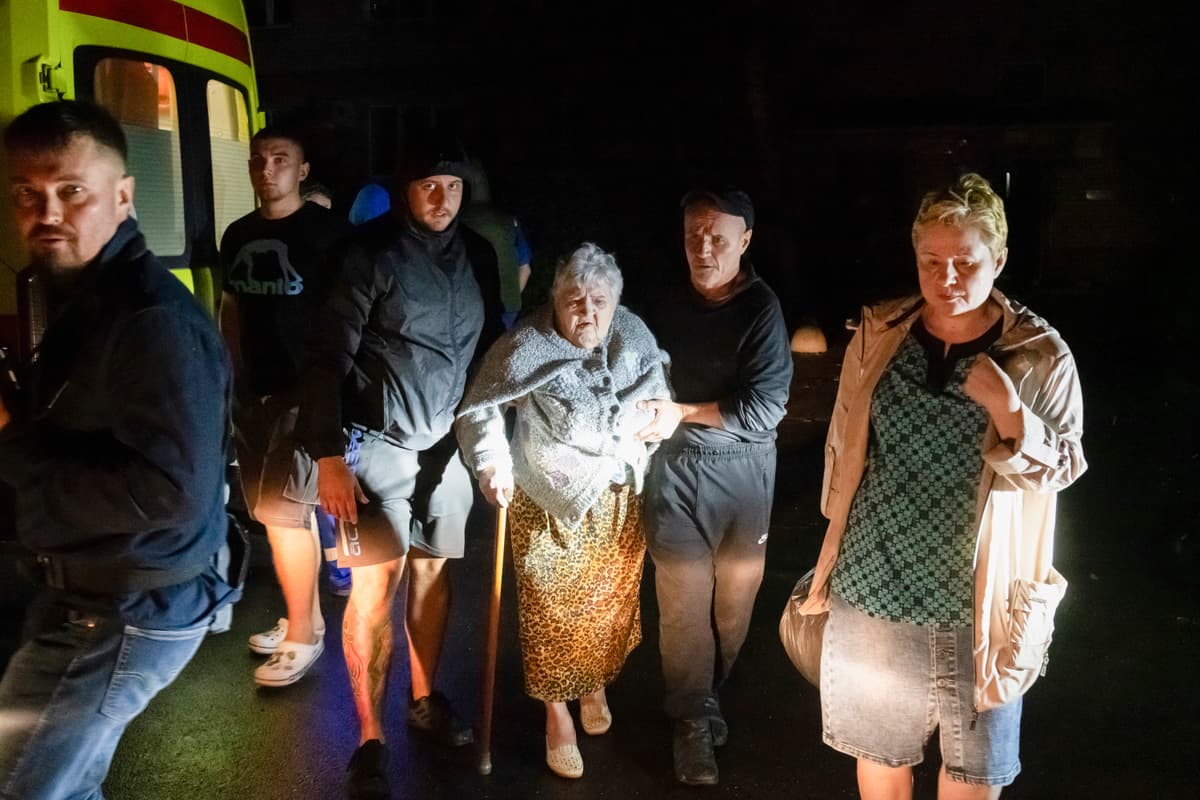
When Russian soldiers invaded Ukraine in late February 2022, an elderly woman was filmed approaching two armed soldiers. “Take these seeds and put them in your pockets,” she implored, proffering the seeds of Ukraine’s national flower. “That way, at least sunflowers will grow when you all die down here.”
In contrast, when Ukrainian soldiers arrived in Russia’s Kursk region earlier this month, the common complaint from Russian residents was: “Why were the evacuation buses so late?”
Behind this tale of two countries is fatigue over the two and a half year old war. As a former speechwriter for President Putin, Abbas Gallyamov, wrote 10 days after Ukraine’s invasion of Russia on August 6, much of Russia’s current nationalism is “a show organized by professional actors.”
Initially, Moscow’s armchair hawks squawked on state TV that Ukraine’s invasion of Kursk was the first foreign invasion of Russia since the Nazi came in 1941. However, this time around, no lines are forming at Russian military enlistment offices. Today, as the invasion completes three weeks, the world is not seeing Russian men and women stepping forward to defend their motherland.
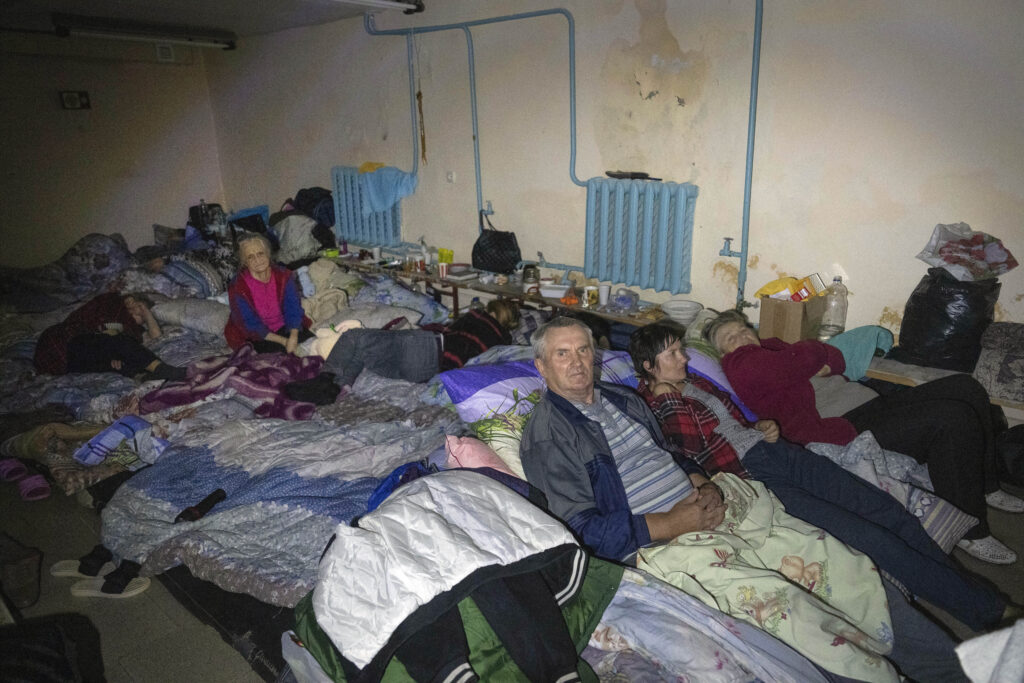
In Kursk, civilian attitudes seem to be: Let President Putin’s army fight Mr. Putin’s war. Five months after 76,277,708 Russians voted to give Vladimir Putin a fifth six-year term as president, few Russians are picking up a gun to defend the Putin presidency. Today’s apathy is an echo of last summer’s military mutiny, a revolt that got halfway to Moscow without evoking a real response from Putin loyalists.
People are not “storming military registration and enlistment offices in a desire to go to the front to defend the homeland from the enemy,” Tatar activist and commentator Ruslan Aysin writes in an opinion piece for Radio Free Europe. “Officials routinely report that ‘we are together, we are like one family.’ But there is no smell of sincerity here. Everyone survives alone.”
Apathy may be the response that Russian authorities want in the face of a foreign incursion that may require months and tens of thousands of soldiers to reverse, Russian political scientist Sergey Starovoitov writes in Real Tribune. “But if this threat grows, or if Moscow faces other problems for which it needs to mobilize the population, such apathy may not be a resource for the regime but become a threat,” he continues. “That is because if the Russian people react to such things with such apathy, they are unlikely to be willing to be mobilized.”
A former analyst of Russia for the CIA, Paul Goble, finds the passivity of modern Russians to be stunning. “Why aren’t Russians en masse demanding that [Putin] declare war and mobilize all the forces of the country to drive the foreign forces out?” he asks in his Windows on Eurasia blog.
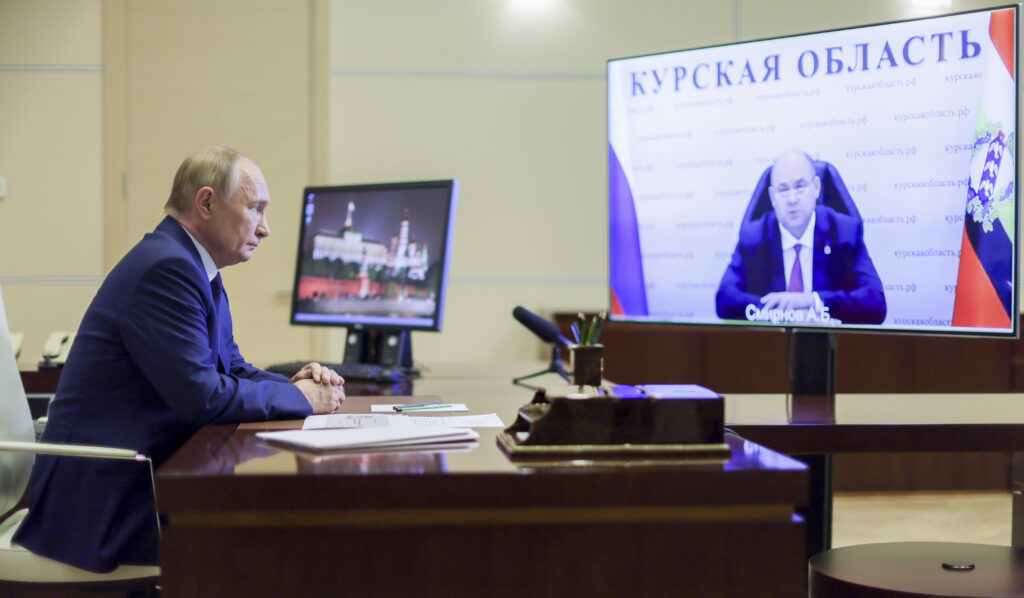
“It is difficult,” he adds, “to imagine the population of any other country suffering an invasion and not making such a demand; and indeed, it is impossible to identify any other event in Russian history where the population did not respond to an invasion with a wave of patriotic anger that helped the government mobilize to drive the invaders out.”
During Germany’s World War II-era occupation of Bryansk, Kursk’s northern neighbor, 60,000 men and women disappeared into the forests to join the guerrilla partisans. To honor that resistance, Russia celebrates on June 29 Partisans and Underground Fighters Day. This year, Ukraine invaded five weeks later. However, a new poll from the Levada group indicates that Russian support for a peace settlement with Ukraine has hit 58 percent.
To keep the population calm, the Kremlin downplays the invasion and occupation. The message is that, for the foreseeable future, this will be Russia’s “new normal.” a Latvia-based Russian news site, Meduza, reports: “Officials in Moscow are over the initial shock and are now trying to spin the ongoing fighting on Russian territory as yet another ‘new normal.’”
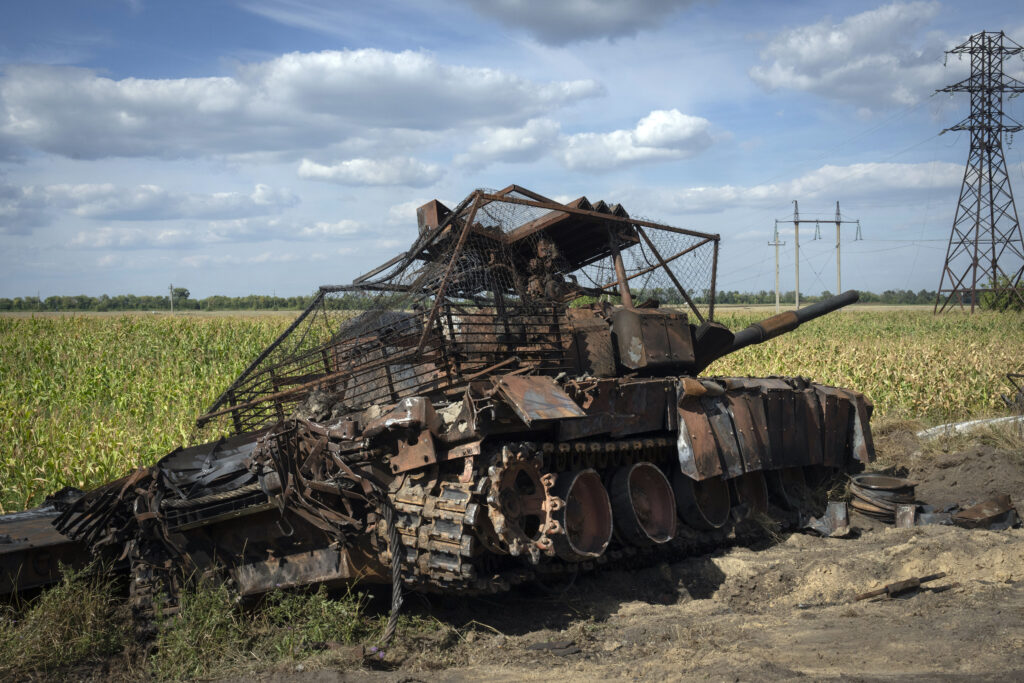
Kremlin spokesman Dmitry Peskov, freshly returned from his vacation, yesterday promised reporters asking about Ukraine’s invasion: “Such hostile actions cannot remain without an appropriate response. There definitely will be a response.”
As befits Russia’s “vertical power” system, Mr. Putin sets the tone. Three weeks after Ukraine’s invasion of Kursk, he has yet to visit Kursk or to address the nation on the topic. In broadcast meetings, he has referred to “the provocation” or simply “the situation.” He studiously projects an image of business-as-usual: Visiting Azerbaijan for two days to talk trade, sampling apples in the Caucasus, and then touring a candy factory.
Taking cues from the leader, a lower level official explained a recent decision to forgo holding local elections for governor in areas controlled by Ukraine’s army: “Territorial uncertainty will remain for a long time. And so it was decided not to have elections in which the victors might not be able to govern.” A Putin foreign-policy adviser, Yuri Ushakov, dismissively referred to the Ukrainian occupation of almost 500 square miles of Russian territory as “the current escapade.”
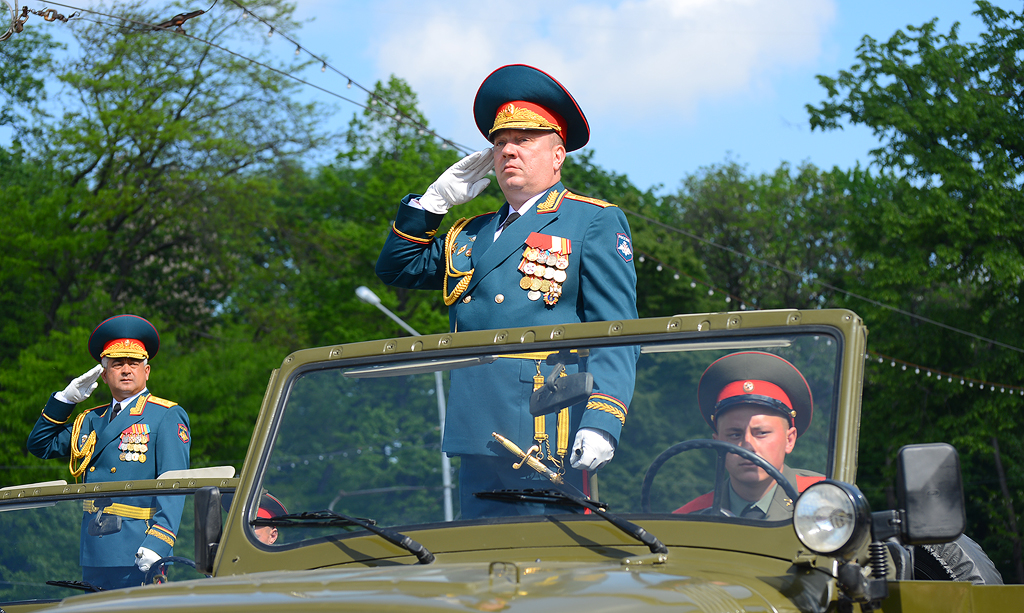
After flailing for a few days with the new reality, state TV news editors opted to cover a foreign invasion the way they would a flood or an earthquake. News reports from Kursk focus on the humanitarian aspect — delivering food, water, and clothing to the 130,000 Russians displaced by the invasion. To avoid alarming the nation, military news of Ukraine’s invasion often goes unreported.
Moscow’s normally sulfurous talk show hosts are dialing down the rhetoric. Prominent Putin propagandist Vladimir Solovyov lectured his guests — and the nation — that the time has come to “calm down.” Full agreement came from one studio guest, Andrey Gurulyov, a Duma member. A former Russian Army officer and a hard-line nationalist, Mr. Gurulyov declared: “The most important thing is for everyone to shut up.”

